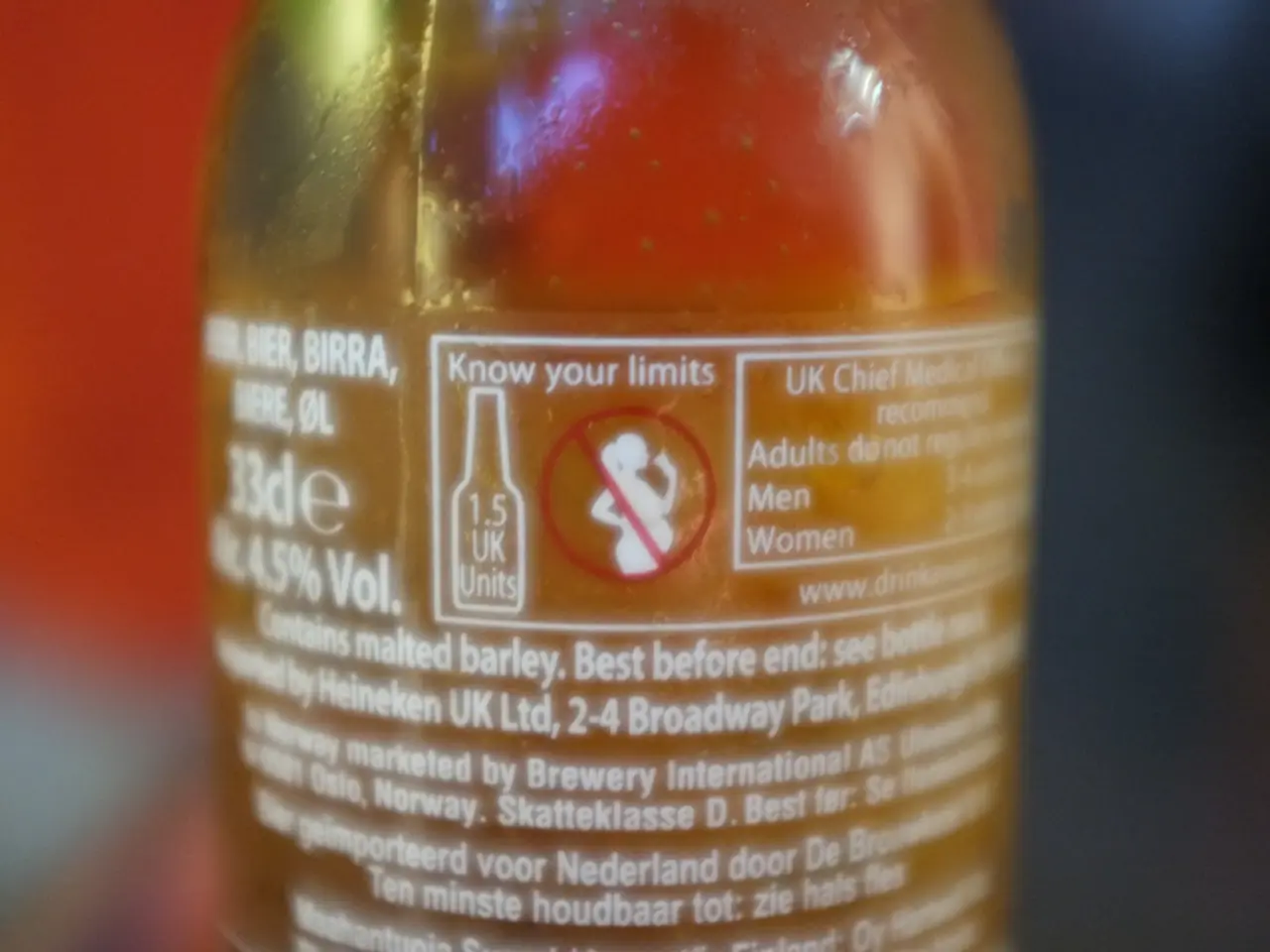Multitudes of Belgians Undergo Testing for Blood Chemicals
In the heart of Belgium, a growing concern about the presence of per- and polyfluoroalkyl substances (PFAS) in drinking water has prompted the Wallonia regional authorities to take action. The PFAS scandal came to light in 2023 when a Belgian broadcaster revealed that authorities had ignored warnings about PFAS contamination for years [1].
Water samples in Braine-le-Château and several other municipalities showed PFAS contamination levels five to six times above the recently adopted Belgian safety standard of 4 ng/L for certain PFAS compounds [1]. Yves Coppieters, the Walloon Minister of Health and the Environment, has acknowledged the population's concern and the difficulty in resolving the issue without a clear pollution source [1].
To address this crisis, the regional government has implemented several measures. Water distribution firms have been ordered to install activated carbon filters to reduce PFAS levels in drinking water [1]. A large-scale blood testing campaign for residents has been launched to assess chemical exposure, with approximately 1,300 people across about 10 municipalities having undergone testing so far [1].
The regional authorities have also accelerated compliance with stricter European Union (EU) drinking water PFAS standards. Wallonia moved up compliance to EU rules limiting total PFAS to 100 ng/L by 2025, with all local water distributors reportedly meeting this standard now [1].
However, the source of the contamination remains unknown. The US military, which operates an airbase in the town of Chièvres, had warned the local water supplier about high PFAS levels in drinking water as early as 2017 [1]. A judicial investigation to determine the exact pollution source is ongoing.
The Belgian government has faced public frustration over delayed information and ignored warnings, including earlier alerts from the US military airbase at Chièvres [1]. Coppieters admits that full resolution may take decades and emphasizes preventive measures such as discouraging consumption of home-grown produce potentially contaminated by PFAS [1].
Studies suggest that certain PFAS can damage the liver and immune system, reduce the effectiveness of vaccines, and impair fertility and cause cancer in humans [2]. In response, Coppieters advocates for a fundamental ban on PFAS [1].
Residents like Douglas, from Braine-le-Château, were initially told by local authorities that the measurements of PFAS in the drinking water were normal [1]. Douglas is hoping that ongoing blood tests will bring clarity to the people in the French-speaking region [1].
Germany, along with Denmark, the Netherlands, Norway, and Sweden, had pushed for a comprehensive restriction of PFAS at the EU level at the beginning of 2023 under the previous coalition government [1]. The regional government in Belgium has decided to adopt an EU directive on PFAS that will come into effect in 2026, allowing for a maximum of 100 nanograms of 20 PFAS chemicals per liter of tap water [1].
As the investigation continues, the Belgian government is working to contain and assess the contamination, while advocating for stricter regulations on PFAS nationally and internationally. The people of Braine-le-Château and other affected municipalities await the results of the blood tests and the resolution of the PFAS crisis.
References: [1] La Libre Belgique. (2023, March 15). La contamination des eaux de Braine-le-Château : le gouvernement wallon réagit. Retrieved from https://www.lalibre.be/info/societe/la-contamination-des-eaux-de-braine-le-chateau-le-gouvernement-wallon-reagit-a3555017
[2] VRT NWS. (2023, March 15). Contamination PFAS in Braine-le-Château: what is known so far. Retrieved from https://www.vrtnws.be/nl/belgie/contamination-pfas-in-braine-le-chateau-wat-is-er-al-bekend/a12965129/
- The regional government of Wallonia, in response to the PFAS crisis in drinking water, is advocating for a fundamental ban on the use of small and medium-sized undertakings (SMEs) that produce or handle PFAS, considering their potential adverse effects on health-and-wellness and environmental-science.
- To promote science and responsibility in the application of SMEs, the Walloon Minister of Health and the Environment, Yves Coppieters, is proposing the allocation of resources for research and development in finance toward creating safer alternatives for PFAS, to ensure a healthier community policy for future generations.




